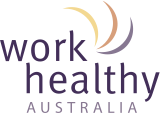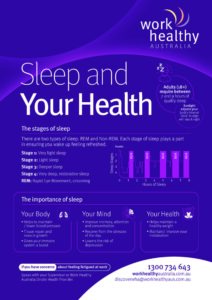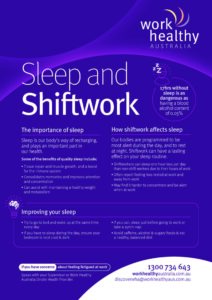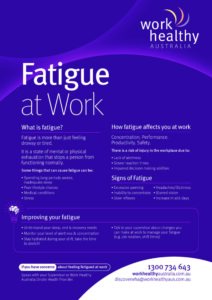
In today’s fast-paced world, sleep is often undervalued, yet it is crucial for maintaining optimal health and productivity. Sleep deprivation or poor-quality sleep can lead to impaired decision-making, reduced productivity, and increased risk of workplace accidents.
The decline in sleep quality and inadequate levels of restorative sleep continue to grow globally. We are fast becoming a sleep-deprived society – and the effects on health and wellbeing can be devastating.
Good quality sleep is essential for our capacity to function and thrive. Studies are now suggesting that anything less than 7 hours sleep is damaging to our health.
An acute or chronic lack of quality sleep can have far-reaching impacts on the following:
- Obesity and diabetes
- Depression and anxiety
- Immune system
- Cardiovascular system
- Brain function
- Hormone regulation
- Memory and cognitive function (with implications for Dementia and Alzheimer’s disease)
- Ageing
- Reproductive system
- DNA and gene activity
- Chronic inflammation
- Cancer
- Metabolism
The significant health effects of sleep deprivation
Sleep deprivation has been shown to significantly reduce natural killer cell activity by up to 70 percent.These cells play a major role in the body’s defense or immune response. They actively seek out cancerous cells and destroy them. Studies have implicated this immune deficiency in the increased risk of bowel, prostate and and breast cancer.
During daylight saving it has been shown there is a 24 percent increase in heart attacks the very next day due to the loss of just one hour of sleep.
During daylight saving time, it has been shown that there is a 24 percent increase in heart attacks the very next day due to the loss of just one hour of sleep. Conversely, when we gain that hour of sleep, there is a 21% drop in the frequency of heart attack on the following day. A similar profile has been shown to exist with car crashes and suicide rates.
As we age, our sleep quality gets worse. Studies have indicated that disruptions in deep sleep are an important factor contributing to cognitive decline or memory decline, which in turn has implications for the onset of dementia and Alzheimer’s disease.
Testosterone levels in males who sleep five hours or less have been shown to be the equivalent to that of a male ten years their senior.
Depression and sleep disturbances are commonly found to co-exist, one influencing the other. Various studies worldwide have shown the prevalence of insomnia in 10- 30 percent of the population, with some rates as high as 50- 60 percent. Depression, impaired work performance, work-related/motor vehicle accidents have all been shown to have an increased incidence in this group of people.
Epidemiological data increasingly suggests that short sleep duration or chronic partial sleep deprivation may increase the risk of type 2 diabetes. Further to this, sleep deprivation has been shown to have an impact on appetite and in turn obesity through a hormone regulated pathway. To this end sleep hygiene counselling has been suggested as an important tool in the management of obesity.
What does all of this mean in the workplace health and safety space?
Employers have a responsibility to support the health and safety of their workforce. Workplace health promotion is just one of the ways organisations can support employee health. A well-rested and attentive employee is a safer employee. Fatigue and poor concentration undoubtedly contribute to many workplace accidents that lead to subsequent injuries.
Additionally, comorbidities linked to poor quality sleep, including obesity, diabetes, depression, anxiety, chronic inflammation, and weakened immune function, pose barriers to recovery.
Implications for the shift worker
Shift work has been associated with a range of health consequences and is currently classified by the International Agency for Research on Cancer (IARC) and also the World Health Organisation (WHO) as a probable carcinogen or contributing factor in the development of cancer. Shift work has been linked to disrupting the body’s circadian rhythms or sleep-wake cycle.

It has been recommended that shift work be arranged clockwise, with a rotating schedule, to minimise the impact on the sleep-wake cycle.
Providing resources and strategies to support good sleep hygiene is an easy and cost-effective way to enhance the health and wellbeing of the workforce. An on-site injury management program can help identify underlying sleep disturbances affecting the workforce, provide workers with health information, and refer workers to other healthcare providers if necessary.
An onsite injury management program can help screen for any underlying sleep disturbance problems impacting the workforce.
At home strategies for better sleep
- Maintain a regular sleep pattern (regularity is key)
- Spend the right amount of time in bed (no less than 7 hours, avoid greater than 8.5 hours)
- Bed is for sleeping, not entertainment (avoid watching TV and smartphone usage)
- Wind down and relax before going to bed (avoid activity/exercise, try some meditation and breathing exercises)
- Ensure your bedroom is comfortable (dark and cool is optimal for sleep)
- Alcohol, caffeine and cigarettes should be avoided
- Avoid clock watching (If you’re struggling to get to sleep, try moving to a different room, try reading until you become sleepy)
- Avoid reliance on sleeping pills (follow advice from medical practitioner)
- Explore some of the helpful apps that aid in good sleep and mental health hygiene
- Talk to a professional if sleep disturbance persists or continue to wake unrested and fatigued (an underlying health condition may exist)
Prioritising sleep isn’t just about feeling rested—it’s a key factor in long-term health and workplace performance.
Employers can support their teams by promoting better sleep habits, screening for sleep disruptors with their onsite health provider, and reviewing shift schedules to ensure adequate recovery time.
A well-rested workforce is safer, healthier, and more productive.
Sleep and fatigue posters for your workplace
Sign up to our monthly enewsletter
"*" indicates required fields



